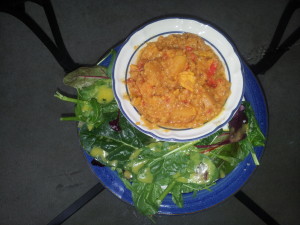Addicted
I confess. I’m a sugar addict. I gave up sugar for several months in the spring/summer of 2012 when my determination to get well overcame my desire to consume the white stuff. Then I went on holiday, slipped off the wagon and (because holidays are a relaxing time with few demands) improved. That destroyed my motivation to go back on a sugar free diet, and although I’ve had a few attempts at it since I’ve not managed to kick the habit. I’m doing my best to minimise my consumption, but I frequently succumb to some dark chocolate, or my daughter’s baking.
A sugar free diet is crucial if you are someone who is suffering from Candida or Small Intestine Bacterial Overgrowth (SIBO). It’s also an ideal for all of us. There is plenty of evidence that sugar is bad for us, and unlike some foods e.g. caffeine and red wine where there are health claims that in some way counter balance the negative effects I’m not aware of any beneficial health claims for sugar.
What’s the problem with Refined Sugar?
Whole books have been written about sugar. Since I want to keep this post fairly brief, I’ll focus on the main issues for ME/CFS sufferers:
Nutritional Value
It’s empty calories – no micronutrients, just pure carbohydrate. To heal our bodies we should be aiming for optimum nutrition from our food, refined sugar is absolutely wrong in this respect.
Blood sugar, insulin and weight gain
Sugar is absorbed into our blood stream quickly leading to a spike in blood glucose levels. Our body responds to this by releasing insulin, which reduces the level of glucose by diverting it into body tissues for short term use or storing it as fat. The surge of glucose followed by the rapid drain leaves us starved of energy, so we search for another sugar fix to bring us out of the slump. Insulin also inhibits the conversion of body fat back into glucose for the body to burn. Since high insulin levels prevent the body from burning fat if you want to lose weight it is important to keep your insulin levels low. You may have been advised to eat low GI food -this was the only nutritional advice I got from the NHS ME/CFS clinic I attended. Low GI foods break down in your digestive system at a slow, steady rate and hence do not cause such a spike in insulin levels.
Hormone Regulation
ME/CFS sufferers often have difficulty regulating their hormones, due to problems with the Hypothalamic-Pituitary-Adrenal (HPA) axis. Thus putting stress on this system, by eating lots of sugar and needing our hormones to balance is not a good idea.
Gut Bacteria
Bacteria in our gut carry out many important functions. You can read more about that in A Healthy Gut. There are many factors that can affect our bacteria, (see what causes damage to our gut). One of the factors that can have an adverse effect on our gut bacteria is Sugar. The “bad” bacteria feed on sugar and increase in number. This crowds out the “good” bacteria and can lead to a damaged gut.
My Experience
I know if I eat a lot of sugar I don’t feel good. I get shaky and weak. It’s not a nice feeling. On my 40th birthday my friends threw a small get together for me (it was all I could cope with). They baked cakes and whilst they were drinking wine, they knew I wasn’t drinking alcohol, so they had bought a selection of soft drinks for me. I was touched by the effort they had put into the evening, and whilst normally I politely decline soft drinks and stick to water I did imbibe on this occasion, along with plenty of cake (it was my birthday after all). That night I woke up at about 3 am with my heart pounding – fight or flight at its best. When I spoke to my nutritionist about this she explained it was probably due to my body trying to process the sugar – in particular my liver struggling to cope with blood so high in glucose. In simple terms my liver was struggling so the body helped by going into emergency (fight of flight mode). This experience was unpleasant enough to ensure that when I do eat sugar I usually limit the quantity and try to eat it with other foods, especially fat and/or protein which helps moderate the effect.
A way forward
If you’re eating a high sugar and high refined carbohydrate diet, don’t try and make a sudden change. Instead aim for a gradual change. Think of one thing you are going to change this week. For example, perhaps you will stop drinking fizzy pop and replace it with water and/or herbal tea, or perhaps you will swap your daily mars bar for a square of dark chocolate and an apple. As I said in increasing or decreasing it is easier to focus on what you want to increase in your diet rather than what you are decreasing.
Writing this article has made me more mindful of my own sugar consumption. I am not ready to commit to going sugar free again at the moment, but I am going to take a look at my sugar habit and think about how to reduce it further.

